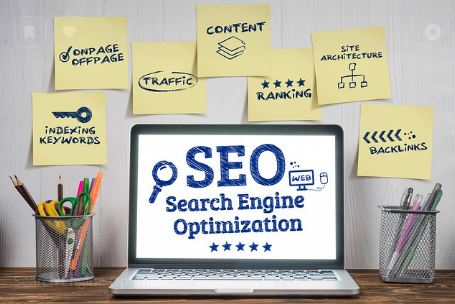SEO – Search Engine Optimization –
Definition of SEO – Search Engine Optimization
SEO stands for Search Engine Optimization. It is a set of practices and techniques used to improve a website’s visibility and ranking in search engine results pages (SERPs).

Primary Objectives of SEO
The primary goal of SEO is to increase organic (non-paid) traffic to a website from search engines like Google, Bing, Yahoo and others.
Importance of SEO
SEO (Search Engine Optimization) is of paramount importance in today’s digital landscape for several reasons:
- Increased Visibility: SEO helps websites rank higher in search engine results pages (SERPs). When your website appears on the first page of search results, it’s more likely to be seen by a larger audience. Improved visibility can lead to more organic traffic.
- Higher Organic Traffic: Websites that rank well for relevant keywords receive a significant portion of their traffic organically, without relying heavily on paid advertising. Organic traffic is often more sustainable and cost-effective.
- Credibility and Trust: Websites that rank at the top of search results are perceived as more trustworthy and credible by users. High rankings imply authority and expertise in a particular topic or industry.
- User Experience: SEO involves optimizing not only for search engines but also for the user experience. This leads to better website usability, faster loading times, and improved mobile-friendliness, all of which contribute to a positive user experience.
- Competitive Advantage: In competitive industries, SEO can provide a significant advantage. Outranking competitors in search results can result in a larger market share and increased brand recognition.
- Cost-Effective Marketing: Compared to many other forms of digital marketing, SEO can be highly cost-effective. While it requires an initial investment, the ongoing costs are often lower than continuous paid advertising campaigns.
- Long-Term Strategy: SEO is a long-term strategy that can yield benefits for months and years after initial implementation. High-quality content and backlinks continue to generate traffic and improve rankings over time.
- Targeted Traffic: SEO allows you to target specific keywords and demographics. This means you can attract visitors who are actively searching for products, services, or information related to your website’s content.
- Analytics and Insights: SEO tools and analytics platforms provide valuable data about website performance, user behavior, and keyword trends. This data can inform not only SEO efforts but also broader marketing strategies.
- Global Reach: SEO can help businesses expand their reach beyond local markets and target a global audience. It’s particularly beneficial for e-commerce websites and businesses with products or services that can be delivered internationally.
![]()